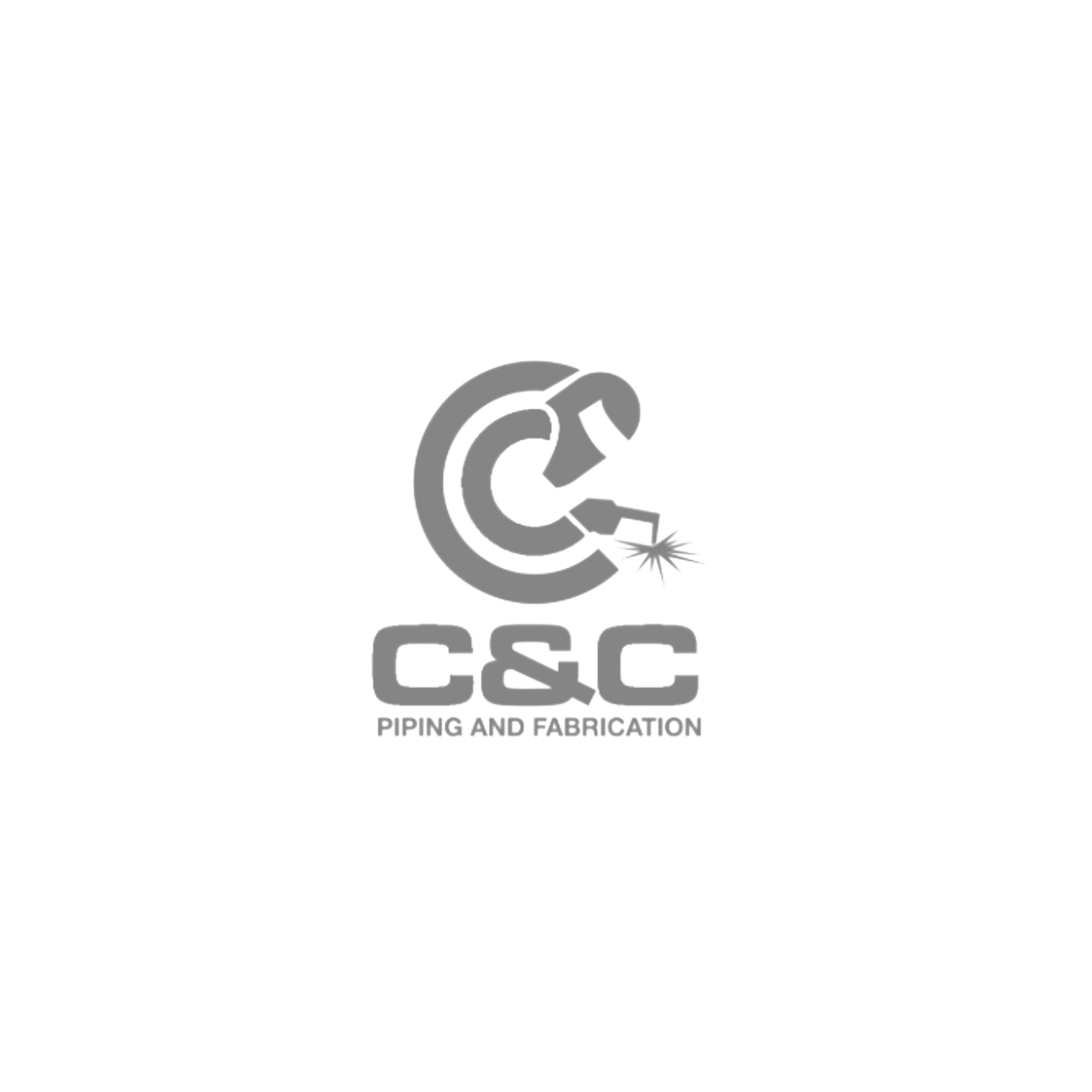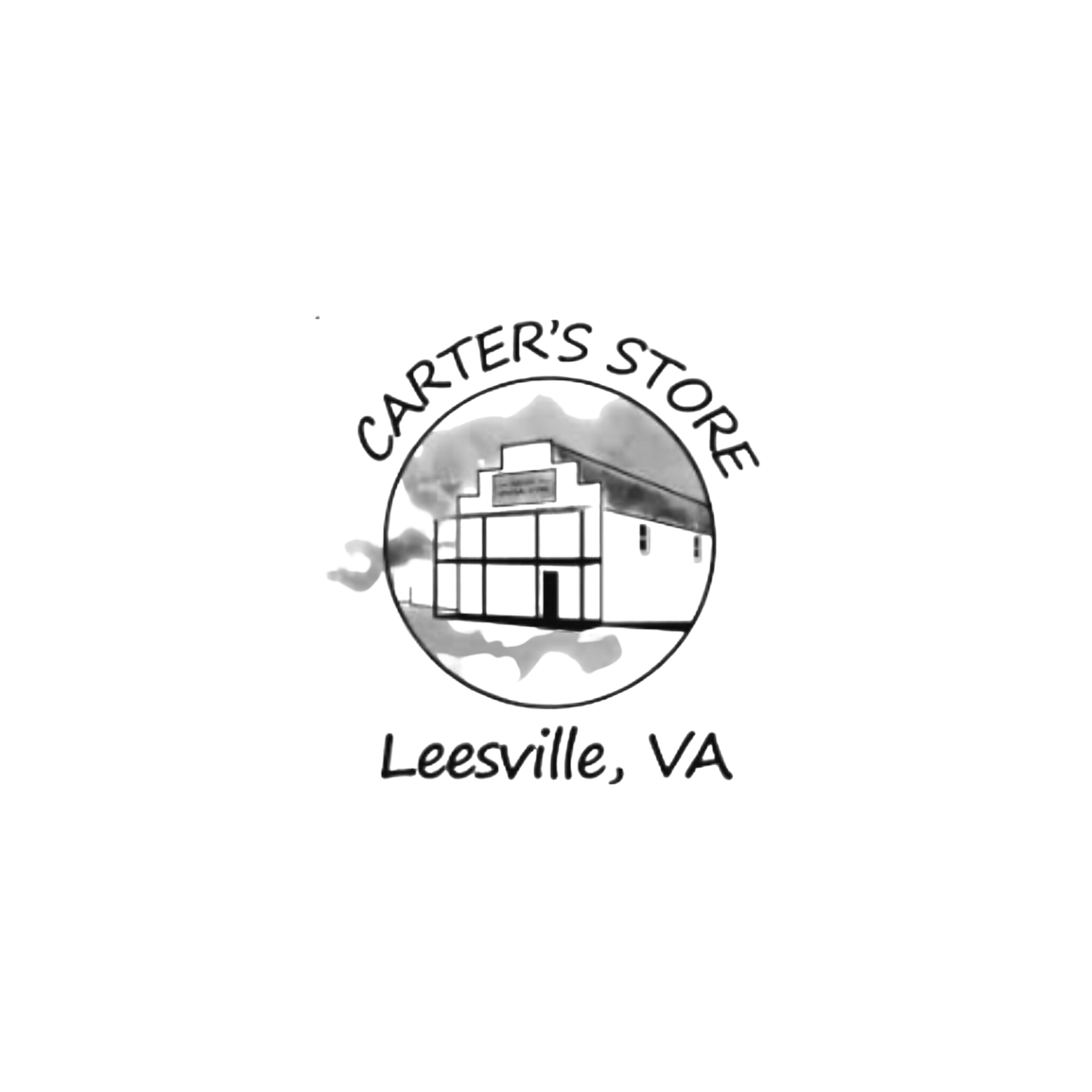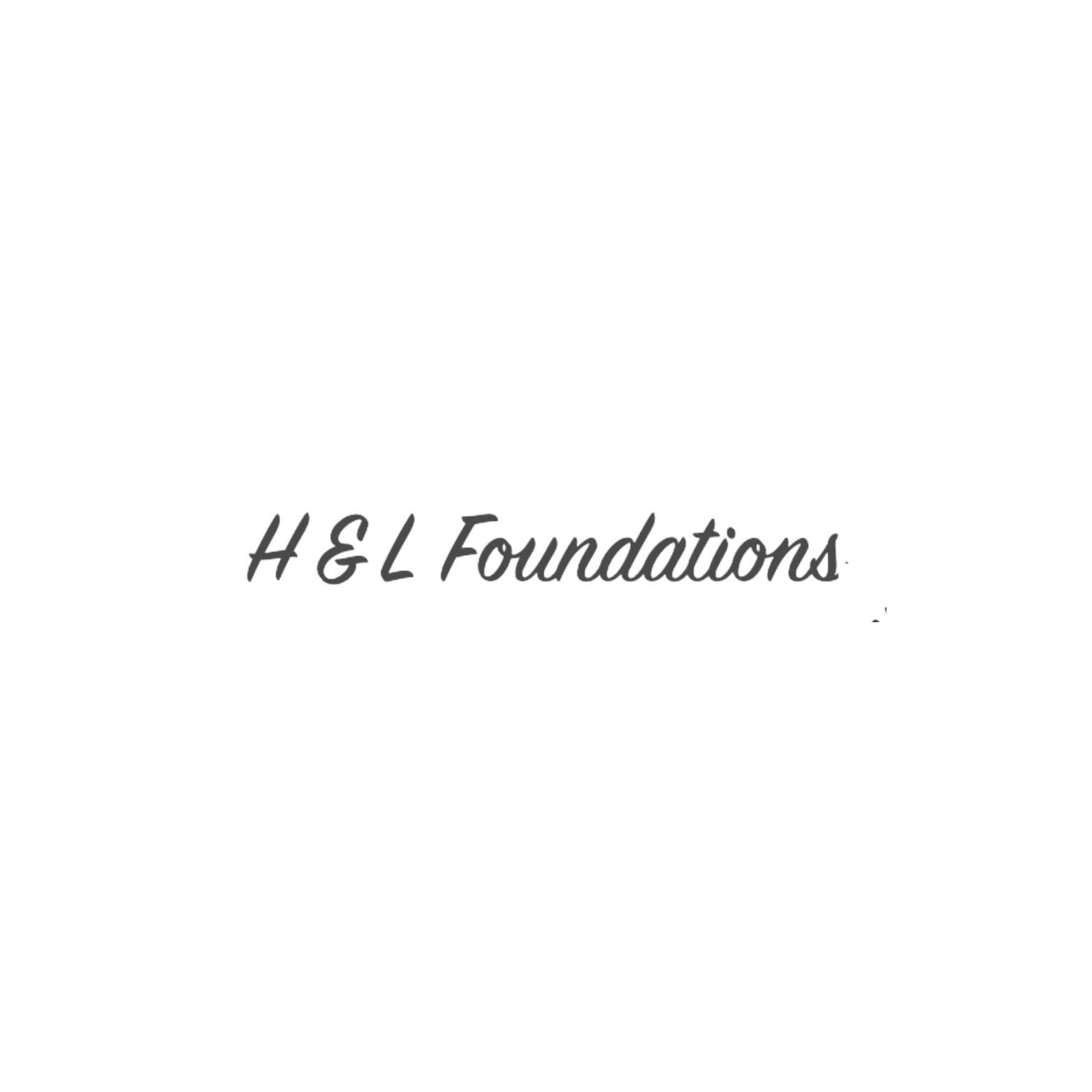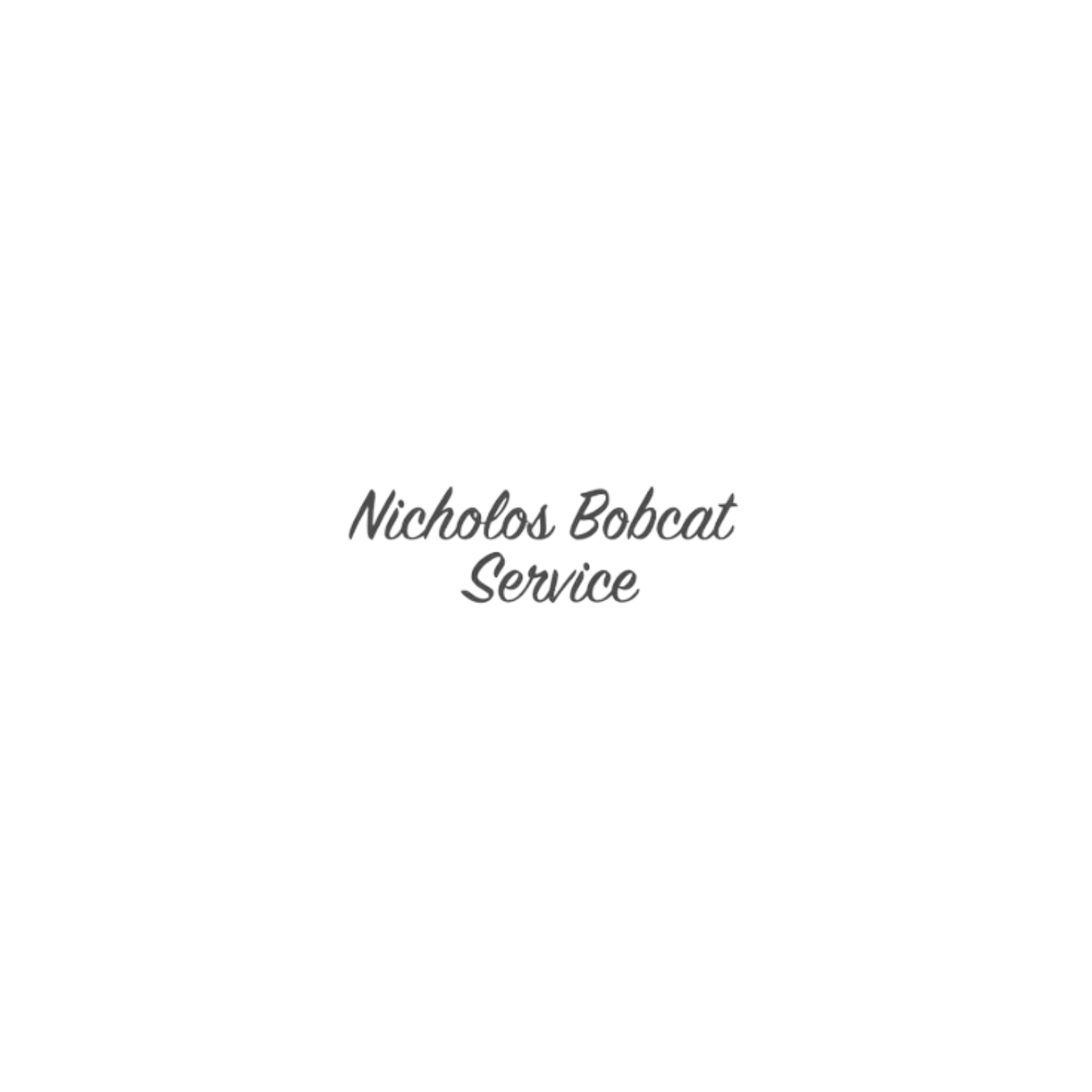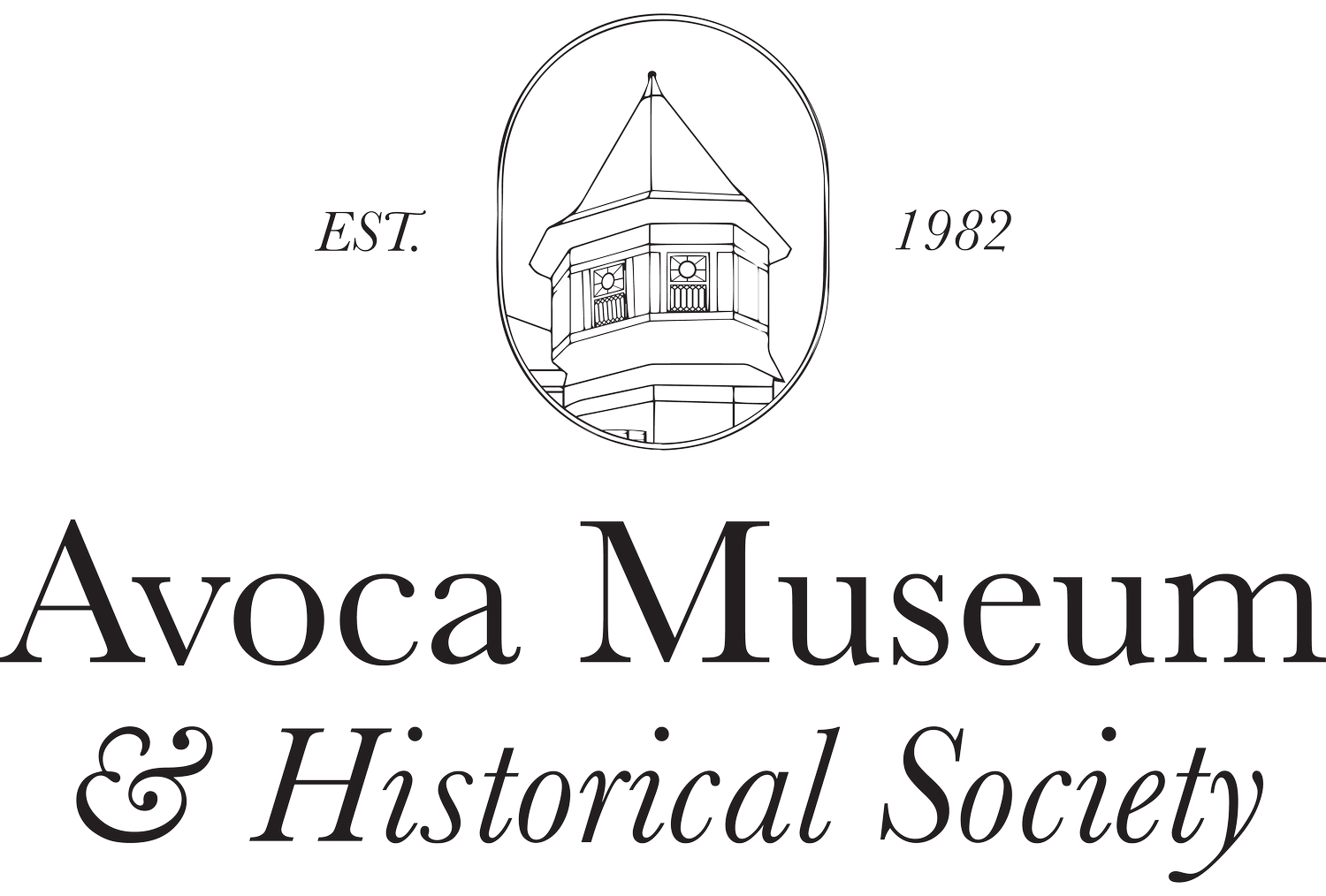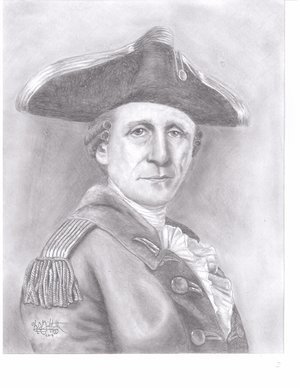Avoca’s History
artist conceptualization by Kyle Griffith
Colonel Charles Lynch
How did the son of an indentured servant develop empathy for enslaved people?
It's a long story - but a fascinating one.
Colonel Charles Lynch was an American Patriot who left behind an enduring legacy on his community and his nation. However, as is the case with many famous Americans, there are several misconceptions about Colonel Charles Lynch. Many accounts depict him as a larger than life, and most notably a brutish, figure but these descriptions may be viewed as far too simplistic. Lynch was a principled man, and he lived his life in pursuit of bettering his community and country. Biographer Gordon Godfrey Fain once explained that, “some aspects of Lynch’s character seemed fairly obvious if the known facts are supplemented with a little speculation” and that observation certainly seems to be true in Lynch’s case. His distinguishing characteristic of patriotism was, in his eyes, the greatest contribution to the world that he could have offered. In establishing his mark on the Revolutionary War, he also created a legacy that will always be debated.
To understand the legacy of Lynch, it is necessary to understand the legacy of his father and namesake. Avoca and Col. Lynch both trace their origins to an Irish immigrant named Charles Lynch the Elder. According to family tradition, Charles Lynch the Elder was a sixteen year-old young man who bristled against a harsh schoolmaster (other accounts state that he had differences with a stern grandmother). The legend states that he ran away from his home in the western port city of Galway, located on the western coast of Ireland. Once he made it to the docks, he surreptitiously stowed away aboard a ship that he thought was bound for a European destination. However, during the journey he overheard sailors discussing their destination as Virginia and it was then that young Lynch knew he had made a grave miscalculation. He was able to gain an audience with the ship’s captain, but his pleas to be returned to Ireland were ignored. Realizing that his fate was sealed as long as he stayed aboard the ship, Lynch attempted to jump ship and swim his way back to Ireland. The ship’s crew broke with maritime tradition that something – or someone – claimed by the ocean should be left to the ocean, Lynch was plucked from the water. The young runaway was placed in chains and spent the remainder of the journey in the ship’s hold. Upon arriving in Virginia, he entered into an indentured servitude contract with a successful Quaker named Christopher Clark. In the eighteenth century British-controlled American colonies, indentured servitude was an arrangement in which a person unable to pay for his passage across the Atlantic would agree to work a period of time – usually five to seven years – in consideration of the person who paid the cost. Lynch would look back on his indenture to Clark and call it “a second birth” in the sense that he was treated very well by his new master. Clark treated Lynch as a son and provided for an apprenticeship to Clark’s biological son, a lawyer, and even released Lynch from his indenture early. He departed his former master’s farm with livestock, equipment, conveyances, and even his master’s fifteen year old daughter. From that point, Lynch and a tribe of Quaker brethren migrated from one locality in Virginia to another, establishing and developing business interests in each place. He prospered and gained significant tracts of land in the counties of Caroline, Goochland, Louisa, Orange, Albemarle and Bedford by merit of land grants made by George I and George II. After a decade and half living in this manner Lynch, his wife Sarah, and their six children finally settled on high ground overlooking a bend in the James River which is present-day downtown Lynchburg. The former Galwegian dubbed this new acquisition “Chestnut Hill” and began the process of making it a profitable settlement like the others. Unfortunately, Lynch’s sudden and untimely death led to an arrangement in which the land was divided by his four sons – Edward, John, Charles (Jr.), and Christopher. While the other sons obtained land closer to the James River, Charles Jr. inherited excellent farmland to the south along the banks of the Staunton. Included in this acquisition was at least 6,353 acres and numerous head of livestock. Charles Lynch, Jr. was an active participant in local and colonial politics once his father’s estate was settled. As a prominent local figure and planter, he made a significant impact on local politics while loathing the eastern Virginia dominance of the colony’s legislative bodies. His policies have resounding effects throughout the colonies although Lynch seemed more interested in local politics. Young Mr. Lynch initially would not have enjoyed the prestige necessary to be elected to representative office until he consolidated his land holdings and organized his plantation.
The Legislator
In 1769, he and John Talbot were elected as representatives from Bedford County to the House of Burgesses. Lynch served on the Trade Committee, placing him in an influential role for instituting boycotts on British. Colonel Lynch would later use this position to his advantage to preserve the Patriot cause. He along with Patrick Henry, Thomas Jefferson, and George Washington formed an “Association” to prohibit the exchange or sale of tea, glass, and paper products until the British tax on those items were removed.
That November, Lynch began to exhibit an affinity for involving himself in politics beyond his locality. His election would mark the beginning of an enduring position in the Virginia political realm. Although his attendance at the House of Burgesses sessions was intermittent at best, researchers today do know that he attended some of the proceedings as he purchased a slave in Williamsburg that winter. The following year, 1770, he was absent for almost the entire session. In November of that year, he received his first in a series of appointments as a justice of the peace for Bedford County. Although he may have loathed the Quaker tendency to make inquiries into other people’s business, those tendencies served him well as he investigated alleged violations of the colonial boycott that year. While Lynch was quite involved in his community, personal business kept him from attending House meetings for the next two years.
Lynch did not take on a more active role in colonial matters until the tensions between England and her colonies began to build. He served on the Committee of Public Claims as the Empire and her American colonies began to experience the first bouts of agitation. This assembly would later be dissolved by Lord Dunmore, the last colonial governor of Virginia, on May 26th, 1774. Lynch made known his displeasure with this and Parliament’s closing of the Port of Boston as reprisal for the Boston Tea Party. He and several other colonial leaders met and signed a protest at the Raleigh Tavern in Williamsburg in response to that measure. The upstart statesman also attended a meeting at which, he was tasked with electing representatives from Virginia to the First Continental Congress, a body purposed with discussing the future of the colonies. Their main concern was dealing with how the colonies would respond to actions the British had taken against them. Lynch and Talbot represented Bedford County at the Virginia Convention in March of 1775. The venue for the proceedings was chosen to be Richmond’s St. John’s Church. It was at this meeting that Patrick Henry gave his famous “Give me Liberty or Give me Death” speech and Lynch voted to support Henry’s proposal that the militia be readied for war.
Virginia formed its second so-called “Committee of Safety” that very spring. Lynch once again joined with Talbot in joining this body that was tasked with enforcing colonial boycotts on British goods while rooting out any supposed sympathy for British rule. While collaborating with this assemblage, Charles Lynch urged setting a fixed price for sulfur and saltpeter - two components are critical in the creation of gunpowder. Conveniently, Lynch also assisted in arranging operations to mine those ingredients. That meant that he set the prices for goods that he would later sell to the Continental state governments, especially those in Virginia. As a member of the Committee of Safety, he was responsible for rooting out any loyalist rabble-rousing. An incident of this ilk occurred between Lynch and one John Hook where allegedly made comments in opposition to the Patriot cause, and in doing so found himself on the wrong end of Lynch’s wrath. It was suspected at the time that Hook made the comments in order to create divisions within the Bedford County community. Lynch reported Hook for the comments that he made against the Patriot cause. Hook later backed off from these statements and Lynch’s role as a guardian of local Patriot sentiment was established.
On the legislative front, Lynch had already established himself as significant lawmaker and community leader. However, his role as a judge- he was a local magistrate- carried through the war and well beyond it. Charles Lynch proved himself to be a man with whom one should not trifle. Legend states on one occasion during his tenure as a frontier Justice of the Peace, he was called upon to referee a disagreement over a contest in which two men had forced captive black bears to fight one another. There is no record of verdict, however; Charles Lynch’s decision proved to be mutually dissatisfactory to the men, and both turned their anger on the Judge. Lynch therefore unleashed his indignation on the men and he held their faces into the soil until they accepted his decision. While Lynch was not greatly concerned with Virginia affairs before the winds of war began to blow, he was always an active participant in local matters. He was twice appointed as a Justice of the Peace and sat many times as a court magistrate. On February 28, 1778, Lynch was recommended by Governor Patrick Henry as a proper man to hold the rank of Colonel of the Militia and as Sheriff of Bedford County. He, therefore, served his final year on the House of Burgesses in 1777.
The Judge and Superintendent
The reality of Lynch’s involvement in conflict was just as his epitaph claims, he was an “active and zealous Patriot of the Revolution”. Lynch was involved in many fronts of the war. Colonel Lynch’s involvement during the war was not limited to strictly a legislative or judicial character. He also performed service in a logistical capacity. As mentioned before, Lynch sold his mined saltpeter to the Continental and state governments, a fact that surely added to his motivation to snuff out Loyalist plots to capture saltpeter, lead, and sulfur mines. Aside from devising new and inventive ways of manufacturing gunpowder and musket balls, Lynch also helped Virginia officials obtain supplies for the army and pay on expense. Virginians had depended on Great Britain almost totally for manufactured goods but when the war ended importation there was an urgent need to find substitutes for British supplies, particularly gunpowder. Previously reliant on imports of gun powder from the West Indies and Europe, colonists had to find other means to produce this vital commodity. Men began experimenting with homemade recipes on their farms. Together with Benjamin Clement, a neighbor who lived at Clement Hill on the south side of the Staunton River, Charles Lynch perfected a way of making gunpowder utilizing the saltpeter he had discovered in the caves of Montgomery County. Thomas Jefferson reported on this fact in his Notes on the State of Virginia.
An issue of the Virginia Gazette, published in Williamsburg June 16, 1775, carried Colonel Lynch’s statement, “I wish for no more credit than I deserve… Mr. Benjamin Clement (Capt. Clement of Pittsylvania County) is a partner with me and the first who attempted to make it… . Since our partnership, we have brought it to such perfection with saltpeter of our own making, that the riflemen approve of it and with the mill we now have, we can make 50 lb. Weight in a day.”
In the November 20, 1775 issue of the Virginia Gazette, Lynch wrote that some people were using the sweepings of smokehouses to obtain saltpeter to be used in making gunpowder, but that he himself had found a small deposit of the same on the west side of Reedy River Island. Virginia had been successful in the production of lead and at the beginning of the war took possession of the Montgomery County lead mines (near present day Austinville in Wythe County) on the New River. Charles Lynch was laced in charge of the mines (1777-1787) and the distribution of its products which were an important source for the manufacture of ammunition. The lead was mined by slaves and guarded by the militia because this resource was an attractive target to the British.
As a martial commander, Lynch’s combat record was not what one would characterize as long and distinguished insofar as field grade officers were concerned. Surviving pension records indicate that Lynch activated the militia from Bedford County and marched its members to present day Concord and Montgomery County, Virginia. Concord was the site of Lynch’s own lead manufactory operation. There were reports that British sympathizers, known as Loyalists or “Tories”, were planning to capture his gunpowder and lead works. Colonel Lynch mobilized the militia to respond to the threat of the Loyalist uprising or any attempt overthrow the Patriot government in Virginia. A Loyalist seizure of the lead and gunpowder could have spelled disaster for Virginia Patriots. As Lynch and the militia marched to Concord, Cornwallis was concurrently pushing his British Army up through the Carolinas. The imminent threat of a British invasion, was a genuine fear for many Virginians. Fortunately, Lynch was successful in preventing the attack, and the militia captured at least seventy-five prisoners. An account written in 1787 by a Bedford County jailer claimed that Colonel Lynch’s deposit overcrowded his gaol and forced him into the hardship that comes with providing food and care for such a large group of prisoners.
In a letter written to Lynch from Governor Thomas Jefferson in August of 1780, it was recommended that Lynch seize anyone upon whom probable guilt rested. Lynch was to then try the accused, and if Lynch judged the accused to be guilty, that person was sent to Richmond for further trial. However, Lynch had little inclination to allow trial to extend beyond the confines of this land known as Green Level. Lynch felt that it would be best to defy the Governors directive for four reasons. Firstly, the distance from Green Level to Richmond was two-hundred miles. This was quite a long and time consuming trek. Not only would the journey be a tedious one, but it would also incur a significant expense, both in terms of finances and time. Additionally, the travelers could encounter many dangers. For instance, it was regarded to be a well-known fact that Tories often waited along the roads in marauding bands, ready to spring upon and overwhelm the Judge’s escort. Finally, such an arrangement would give Tories ample opportunity to procure “false witnesses” these men who Patriots charged would give testimonies laden with deceit. Thus, instead of holding trials in two venues, Lynch tried the accused at Green Level. Lynch acquitted some of the accused, and issued prison sentences ranging from one to five years. Still others were subjected to the most well-known and dreaded aspect of what came to be known as “Lynch’s Law.”
What is the origin of the term “lynching?”
There is an ongoing debate centering around the etymology of the term “Lynch’s Law” and its abbreviated form, “lynching”. The Patriot judge coined the term “Lynch’s Law” at Green Level, which is the present site of Avoca Museum. He used the term to describe the trials and punishment that occurred as a result of those trials. However, historians debate the origin of the word “lynching”. There are three major camps pertaining to the origin of the word.
One camp has it that the term was instituted through the legend of Charles Lynch’s ancestor, FitzStephen Lynch in 1493. The following account was provided by Library Ireland and is attributed to the Dublin Penny Journal (1833):
“ A few years before the battle of Knocktuadh, an extraordinary instance of civic justice occurred in this town, which in the eyes of its citizens elevated their chief magistrate to a rank with the inflexible Roman. James Lynch Fitz-Stephen, an opulent merchant, was mayor of Galway in 1493. He had made several voyages to Spain, as a considerable intercourse was then kept up between that country and the western coast of Ireland. When returning from his last visit he brought with him the son of a respectable merchant named Gomez, whose hospitality he had largely experienced, and who was now received by his family with all that warmth of affection which from the earliest period has characterised the natives of Ireland. Young Gomez soon became the intimate associate of Walter Lynch, the only son of the mayor, a youth in his twenty-first year, and who possessed qualities of mind and body which rendered him an object of general admiration; but in these was unhappily united a disposition to libertinism, which was a source of the greatest affliction to his father. The worthy magistrate, however, was now led to entertain hopes of a favourable change in his son's character, as he was engaged in paying honourable addresses to a beautiful young lady of good family and fortune. Preparatory to the nuptials, the mayor gave a splendid entertainment, at which young Lynch fancied his intended bride viewed his Spanish friend with too much regard. The fire of jealousy was instantly lighted up in his distempered brain, and at their next interview he accused his beloved Agnes of unfaithfulness to him. Irritated at its injustice, the offended fair one disdained to deny the charge, and the lovers parted in anger.
On the following night, while Walter Lynch slowly passed the residence of his Agnes, he observed young Gomez to leave the house, as he had been invited by her father to spend that evening with him. All his suspicions now received the most dreadful confirmation, and in maddened fury he rushed on his unsuspecting friend, w ho, alarmed by a voice which the frantic rage of his pursuer prevented him from recognising, fled towards a solitary quarter of the town near the shore. Lynch maintained the fell pursuit till his victim had nearly reached the water's edge, when he overtook him, darted a poniard into his heart, and plunged his body, bleeding, into the sea, which, during the night, threw it back again upon the shore, where it was found and recognised on the following morning.
The wretched murderer, after contemplating for a moment the deed of horror which he had perpetrated, sought to hide himself in the recesses of an adjoining wood, where he passed the night a prey to all those conflicting feelings which the loss of that happiness he had so ardently expected, and a sense of guilt of the deepest dye, could inflict. He at length found some degree of consolation in the firm resolution of surrendering himself to the law, as the only means now left to him of expiating the dreadful crime which he had committed against society. With this determination he bent his steps towards the town at the eailiest dawn of the following morning; but he had scarcely reached its precincts, when he met a crowd approaching, amongst whom, with shame and terror, he observed his father on horseback, attended by several officers of justice. At present, the venerable magistrate had no suspicion that his only son was the assassin of his friend and guest; but when young Lynch proclaimed himself the murderer, a conflict of feeling seized the wretched father beyond the power of language to describe. To him, as chief magistrate of the town, was entrusted the power of life and death. For a moment the strong affection of a parent pleaded in his breast in behalf of his wretched son: but this quickly gave place to a sense of duty in his magisterial capacity as an impartial dispenser of the laws. The latter feeling at length predominated, and though he now perceived that the cup of earthly bliss was about to be for ever dashed from his lips, he resolved to sacrifice all personal considerations to his love of justice, and ordered the guard to secure their prisoner.
The sad procession moved slowly towards the prison amidst a concourse of spectators, some of whom expressed the strongest admiration at the upright conduct of the magistrate, while others were equally loud in their lamentations for the unhappy fate of a highly accomplished youth who had long been a universal favourite. But the firmness of the mayor had to withstand a still greater shock when the mother, sisters, and intended bride of the wretched Walter beheld him who had been their hope and pride, approach pale, bound, and surrounded with spears. Their frantic outcries affected every heart except that of the inflexible magistrate, who had now resolved to sacrifice life with all that makes life valuable rather than swerve from the path of duty.
In a few days the trial of Walter Lynch took place, and in a provincial town of Ireland, containing at that period not more than three thousand inhabitants, a father was beheld sitting in judgment, like another Brutus, on his only son; and, like him, too, condemning that son to die, as a sacrifice to public justice. Yet the trial of the firmness of the upright and inflexible magistrate did not end here. His was a virtue too refined for vulgar minds: the populace loudly demanded the prisoner's release, and were only prevented by the guards from demolishing the prison, and the mayor's house, which adjoined it; and their fury was increased on learning that the unhappy prisoner had now become anxious for life. To these ebullitions of popular rage were added the intercessions of persons of the first rank and influence in Galway, and the entreaties of his dearest relatives and friends; but while Lynch evinced all the feeling of a father and a man placed in his singularly distressing circumstances, he undauntedly declared that the law should take its course.
On the night preceding the fatal day appointed for the execution of Walter Lynch, this extraordinary man entered the dungeon of his son, holding in his hand a lamp, and accompanied by a priest. He locked the grate after him, kept the keys fast in his hand, and then seated himself in a recess of the wall. The wretched culprit drew near, and, with a faltering tongue, asked if he had any thing to hope? The mayor answered, "No, my son--your life is forfeited to the laws, and at sun-rise you must die! I have prayed for your prosperity: but that is at an end--with this world you have done for ever--were any other but your wretched father your judge, I might have dropped a tear over my child's misfortune, and solicited for his life, even though stained with murder; but you must die: these are the last drops which shall quench the sparks of nature; and, if you dare hope, implore that heaven may not shut the gates of mercy on the destroyer of his fellow-creature. I am now come to join with this good man in petitioning God to give you such composure as will enable you to meet your punishment with becoming resignation." After this affecting address, he called on the clergyman to offer up their united prayers for God's Forgiveness to his unhappy son, and that he might be fully fortified to meet the approaching catastrophe. In the ensuing supplications at a throne of mercy, the youthful culprit joined with fervor, and spoke of life and its concerns no more.
Day had scarcely broken when the signal of preparation was heard among the guards without. The father rose, and assisted the executioner to remove the fetters which bound his unfortunate son. Then unlocking the door, he placed him between the priest and himself, leaning upon an arm of each. In this manner they ascended a flight of steps lined with soldiers, and were passing on to gain the street, when a new trial assailed the magistrate, for which he appears not to have been unprepared. His wretched wife, whose name was Blake, failing in her personal exertions to save the life of her son, had gone in distraction to the heads of her own family, and prevailed on them, for the honour of their house, to rescue him from ignominy. They flew to arms, and a prodigious concourse soon assembled to support them, whose outcries for mercy to the culprit would have shaken any nerves less firm than those of the mayor of Galway. He exhorted them to yield submission to the laws of their country; but finding all his efforts fruitless to accomplish the ends of justice at the accustomed place and by the usual hands, he, by a desperate victory over parental feeling, resolved himself to perform the sacrifice which he had vowed to pay on its altar. Still retaining a hold of his unfortunate son, he mounted with him by a winding stair within the building, that led to an arched window overlooking the street, which he saw filled with the populace. Here he secured the end of the rope which had been previously fixed round the neck of his son, to an iron staple, which projected from the wall, and, after taking from him a last embrace, he launched him into eternity.
The intrepid magistrate expected instant death from the fury of the populace; but the people seemed so much overawed or confounded by the magnanimous act, that they retired slowly and peaceably to their several dwellings. The innocent cause of this sad tragedy is said to have died soon after of grief, and the unhappy father of Walter Lynch to have secluded himself during the remainder of his life from all society, except that of his mourning family. His house still exists in Lombard-street, Galway, which is yet known by the name of "Dead Man's Lane," and over the front doorway are to be seen a skull and cross bones executed in black marble, with the motto, "Remember Deathe, vaniti of vaniti, and all is but vaniti."
There are many reasons why this account is most likely not the origin of the word “lynching”. Firstly, both the Oxford and Collins dictionaries of the 19th century state that the term originated from a Virginia farmer named Lynch. Additionally, if the term does derive from fifteenth century Ireland, it would seem strange that the term does not reappear in the English lexicon until the 1800s. The proximity of the events of 1780 and the popular usage of the term favors a nineteenth century American origin.
A second camp claims that a relative of Colonel Charles Lynch, William Lynch, is the source of the term. According to his own account, he led vigilant justice forays against his neighbors in the years following the Revolution. However, there are some reasons to question the validity of this theory. For instance, one of the strongest proponents of this account was none other than Edgar Allen Poe, who was notorious for his literary hoaxes. Additionally, the only account of William Lynch’s activities show up in an unpublished article written by diarist Andrew Ellicott. Ellicott apparently found William Lynch’s testimony to sound rather outlandish and it is probably for this reason that he chose not to publish the story. The obscurity of William Lynch’s actions, coupled with the fame of Colonel Lynch legend, casts doubt upon these claims.
The Colonel Lynch narrative gives modern readers a third account that is likely because it possesses greatest amount of supporting evidence. This story begins in August of 1780 when a Patriot spy infiltrated a group of British Loyalists called “Tories” in southwestern Virginia. The spy learned of a Tory plot to sabotage Virginia’s lead and saltpeter mines, which were then under the superintendence of Lynch. The plot further contained the design to march on Charlottesville, free British prisoners-of-war, and overthrow the Virginia state government. When Governor Thomas Jefferson learned of this plot, he immediately ordered Lynch to find the ringleaders of the plot, arrange preliminary trials, and send those who appeared to possess the greatest amount of guilt to Richmond for further trial. Lynch quickly gathered about 75 prisoners and brought them to his plantation, Green Level (site of present-day Avoca Museum). With Judge Lynch presiding, some of the accused were acquitted for lack of evidence and others were imprisoned for terms ranging one to five years. Lynch chose to disregard Governor Jefferson’s directive to send the worst offenders to Richmond because of the time and cost of transporting his prisoners the considerable distance to Richmond. Beside these concerns, Lynch reasoned that Tories might arrange an ambush and spring upon the prisoner escort or furnish false witnesses that might serve to have guilty men acquitted. Hence, Judge Lynch would mete out his own version of frontier justice. Legend states that the worst offenders were tied by their thumbs to branches of a black walnut tree and given thirty-nine lashes with a whip known as the cat o’nine tails. If the convicted individual indicated a desire for mercy with the cry “Liberty forever!”, he would be spared the remaining lashes and would be entered into American military service for a period of one year. While Jefferson was displeased with Lynch’s disobedience, he admitted that Lynch’s “activity” deserved commendation. In 1782, the General Assembly passed an act indemnifying Lynch and his cohorts from legal action that might stem from this practice. The act asserted that the measures taken by the Judge against “evil disposed persons” were warranted given the emergency nature of the situation. This conclusion was reached despite the fact that those measures were “not strictly warranted by law”.
Although the definitive source of the word is unknown, some aspects of its origin are certain. Foremost, the term “lynching” is associated with the Lynch family. Charles Lynch was related to William Lynch and both counted FitzStephen Lynch as a forebear. Another surety is that the term did not originally pertain to racial violence. There is no evidence that violence was perpetuated against African-Americans for racist motivations on the land now occupied by Avoca Museum. In fact, there is no evidence that anyone met their demise due to an execution sentence from Judge Lynch. In 1780, Bedford County was a hotbed of Tory activity and sentiment. Prison rolls from that year reveal the names of Tory offenders that are recognizable to current community members. The names Hurt, English, Rust, and Huddleston all appeared on the rolls of suspected Tories. To execute one of these citizens was to invite no trifling amount of civil unrest. It would also have dramatically overstepped Governor Jefferson’s directive to merely try offenders on a preliminary basis and send the worst offenders to Richmond for further trial. All this is not to say, however, that African-Americans were not subjected to what modern observers might characterize the cruel and unusual punishment that Lynch’s Law has become synonymous. Several individuals whom Lynch identified as Negro laborers in his employ at the lead mines were subjected to Lynch’s Law for conspiring with Tories. They were subjected to such punishments at Oxford Furnace, on the grounds that, according to Lynch, they were engaged in activity deemed harmful to the Patriot cause. It should be noted, however, that the same fate was reserved for whites who were shown to be likewise employed. Indeed, the only time during the war that Lynch was accused of demonstrating a racial or ethnic prejudice was in his dealings with Welsh, not black workers.
One possibility is that the Lynch’s Law story passed down to Charles, as he used the term to describe his enforcement of Patriot justice. Perhaps Col. Lynch heard his father spin yarns about his family history and the infamous event in which his ancestors had played a crucial role.
The Patriot judge also served Virginia in a military capacity. In March of 1781, he led Bedford County militia into North Carolina to join forces with Gen. Nathaniel Greene’s army that was gathering in the vicinity of Guilford Court House. The battle that resulted in this confrontation saw Lynch’s militiamen assume a key position on the right flank of the first American line of battle. In this engagement, Lynch commanded riflemen armed with the famous Pennsylvania Rifle. According to an account of these men who were accustomed to hunting and outdoor life, the Virginia riflemen of the backcountry were a sight to see:
“The men generally wore hunting shirts of heavy tow linen; died brown with bark; they were open in front and made to extend down near to the knee and belted round the waist with dressed skin or woven girths. The sleeves were large, with a wrist band round the wrist and fringed over the upper part of the hand as far as the knuckles. Under the hunting shirt was a jacket made of some finer materials, and breeches of dressed buck or deer skin to just below the knees, with long stockings and moccasins of deer leather, and underneath the jacket or vest was also their linen which was made of the finer kinds of flax cloth. The hats were imported from England, Ireland or Scotland or as they said then “from home”—the crown was low round and fitted the head, with a broad a tree cornered or cock’d hat…profane language was very little used and continued to be so until the return however it became very prevalent and I believe was much used for many years afterward.”
The speaker provides a very telling statement concerning the tree cover along the second line as well as how the Virginia militia south of the road fought. He stated, “When we marched near the ground we charged our guns. Presently our brigade major came ordering us to take trees as we pleased. The men run to choose their trees, but with difficulty, many crowding to one, and some far behind others. Presently the Augusta men, and some of Col. Campbell’s men fell in at right angles to us” Houston’s version suggest that the tree cover south of the roadmay have been less thick were the speaker was stationed and also indicates that the Virginia militia fought not in a linear formation but as skirmishers.
Due to their proficiency with their rifled muskets, Lynch’s men were placed on the right flank and instructed to give the British two good shots before turning and fleeing from the enemy. The militia-surprisingly-fought well against their professional British counterparts in this battle. They inflicted high casualties, and fell back in an orderly fashion only to unleash additional volleys on the British as the King’s Army continued to advance. The battle was ultimately a victory for the British as they successfully chased the Americans from the field. However, this victory proved to be a pyrrhic one. One British Member of Parliament, George Fox, famously quipped that “Another such victory for our Army would ruin it!” The battle resulted in Lord Cornwallis’ loss of twenty-five percent of the army, leading him to eventually seek evacuation by the British Navy. He would by-and-by flee to the sleepy little fishing village of Yorktown, but his salvation would never arrive. The resulting siege would feature the last major battle of the Revolution. Colonel Charles Lynch was on the rolls as a field grade officer and present with his command at Yorktown. He was no doubt ecstatic to be there and participate in this last effort. It would not have been lost on him the significance of the situation, and the abiding effort of the tens of thousands of Americans like himself that helped bring about the result.
Complicated Role of Quakerism in Lynch’s Life
Once the war was over, Lynch turned his attention back to his religion. Charles Lynch was raised in the Quaker faith, but he consistently exercised the teachings of his faith only in the early and later stages of his life. Charles Lynch, the immigrant, was not disposed to the active exercise of Quaker Christianity but his wife insisted that their children be raised in the faith. Charles Lynch Jr. was, therefore, strongly influenced by his devout mother as she was an elder in the South River Fellowship. Perhaps the roots of Charles Jr’s participation in the Patriot cause was due to the Quaker ideal that no man is superior to another. We should keep in mind, however, that Quakers did not generally advocate rebellion against authority. Lynch’s name frequently appears in records throughout 1758 and by 1763, he was a pillar of the church community. He once served as historian of church records. However, by late 1764, Lynch seemed to have lost interest in church activities. He refused to return meeting records in 1765. This decision more than likely was a reaction to a judgement made against his brother for “being in practices contrary to the principles of truth…” In July of 1764, Christopher Lynch was subsequently expelled from the Quaker Fellowship. October of 1766 brought about Charles Lynch’s own expulsion from the Quaker Fellowship. A delegation accused Lynch of “taking solemn oaths”. Quakers took Jesus Christ’s command to “let your yea be yea and your nay be nay” quite seriously. They believed that it was a violation of God’s Law to swear by anything. The fact that Charles Lynch did this as a witness to neighbor’s wills, legal proceedings, and his pledge to uphold his commission as a militia officer was regarded as inexcusable by church elders.
Lynch was most certainly taking such oaths, his future judgeship, and command of the militia would affirm this fact. On this occasion though, the oath in question involved settling a neighbor’s estate by serving as an executor. In December of that year, the House of Burgesses ordered “Captain Lynch” to paid for services. If Lynch had not been expelled for taking oaths, he certainly would have been for accepting an officer’s commission. The Quakers were pacifists and to be involved with a military body would stand in anathema to their teachings.
The intervening years between 1766 and 1792 Lynch demonstrated little behavior of which Quakers would approve. This occurred despite the fact that many of his family members- most notably his brother, John, and wife, Anne Terrell, were devout and practicing members of the Quaker faith. We can be certain that Lynch’s drifting caused some degree of friction in his family. Although some records suggest that Charles Lynch’s separation from Quakerism was firm and final upon his expulsion, this does not seem to be the case when other documents are examined. In 1786, however, he appeared with his brother John before a Council of Elders to whom John confessed sin for harboring resentment in his heart against his brother. John was no doubt referring to the tremendous rift that opened between the brothers over the issue of Revolution as Charles was a Patriot and John a Loyalist. Later, Charles assisted John in laying out the lots that would eventually become the City of Lynchburg.
Last Days and Death of Judge Lynch
Despite his reconciliation with his family and faith, the judge still managed to find himself involved in the occasional tense situation. An example of this occurred in 1789 when one William Henderson recommended himself for Sheriff. Lynch had held the position at one time and was said to be jealous of it. During the election season, a letter came across the desk of Virginia Governor Beverley Randolph that accused Henderson of being a drunkard and wholly unfit for the office of Sheriff. The letter was signed by John Ward, a neighbor of Lynch and tobacco merchant who had married Lynch’s widowed mother. When the governor replied to Ward asking for elaboration, Ward’s reply came that he did not write the letter and insinuated that his name had been forged by his son-in-law.
Charles Lynch made profits from the sale of dark leaf tobacco, but did not derive a great deal of income from land speculations. By the end of his life, his landholding exceeded 10,000 acres. However, while he was land-rich, he did not possess much in the way of material wealth at the time of his death. An inventory of his estate reveals items such as "... five old axes, old broken furniture, etc." with an aggregate value of about £ 171. If he had any other worldly possessions in old age, there must have been a spectacular giveaway prior to his demise. No copy of his last will and testament survives, but it is known that his children divided his land shortly after he died. In 1796, Charles Lynch was laid to rest in the family cemetery on the grounds of what is now Avoca. His epitaph succinctly states that he was "an active and zealous Patriot of the Revolution.”
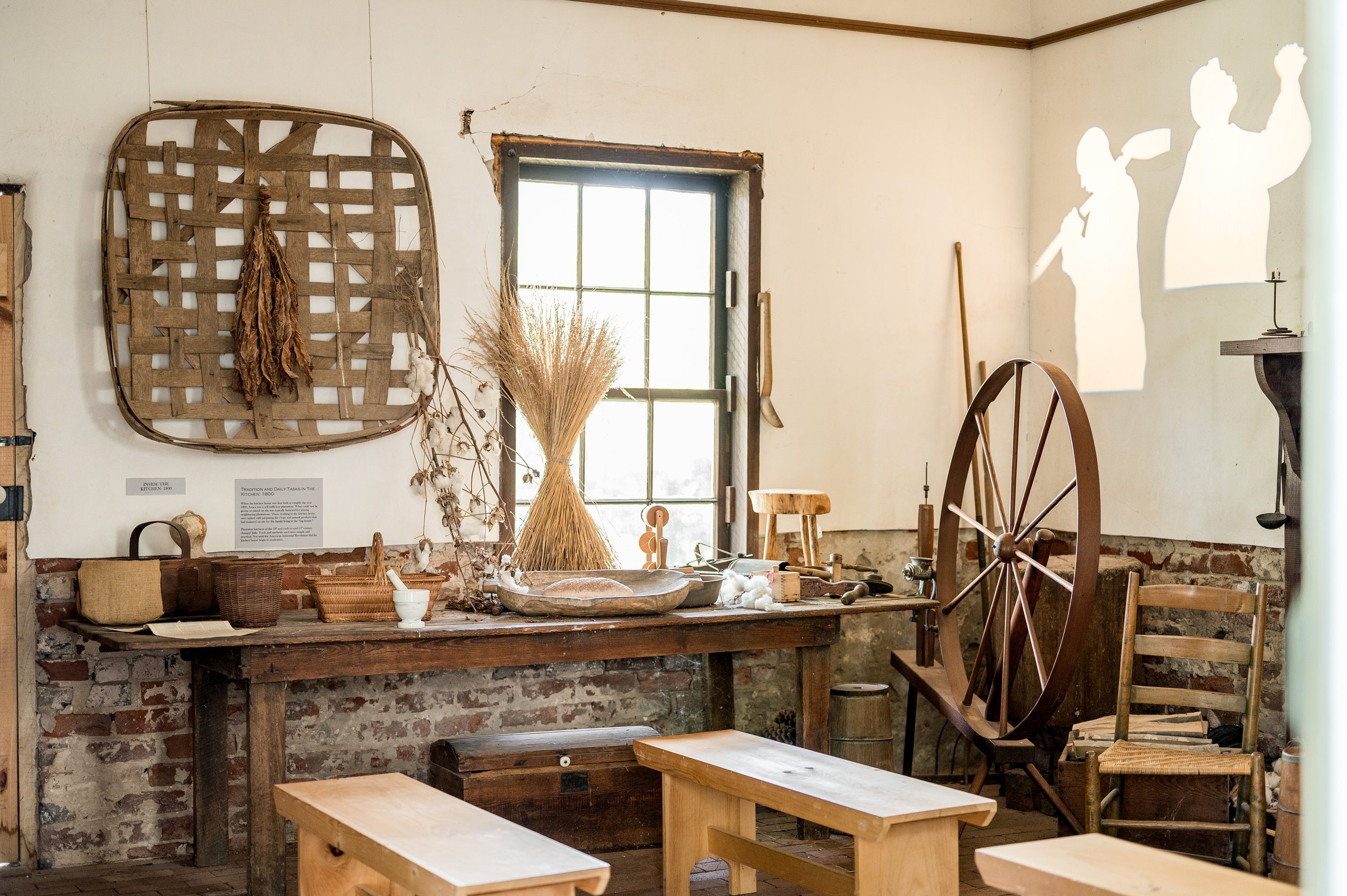
Lynch Manumission
The United States of America’s founding set of laws failed to extend the ideal that “all men are created equal” to those of non-white races, the fact that equal protection under the law was extended to all landowning white males was still a step forward. Three years after the ratification of the Treaty of Paris and the official end of the American Revolution, the younger Charles Lynch (or Col. Charles Lynch, as he is popularly known) is recorded as owning 24 slaves. In 1796, he had 13 and was possibly contracting labor out from slaves on neighboring plantations.
Special thanks…
Avoca Museum would like to thank our generous annual sponsors!


